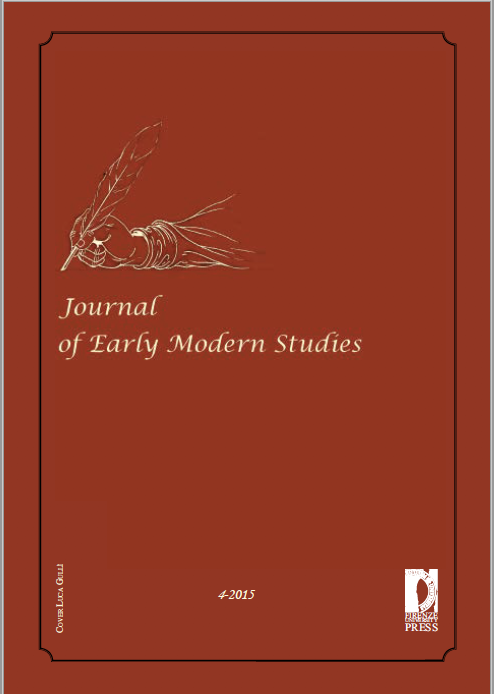Published 2015-03-02
Keywords
- Capitalism,
- Ethics,
- Gender,
- Service/Servants,
- Race
How to Cite
Abstract
This review essay surveys the last ten years of literary scholarship on service and servants in early modern England, with a particular focus on Shakespeare, to offer an overview of approaches and a sense of new directions in the field. The essay examines how studies have often pivoted between considering the act (‘service’) and the person (‘servant’) who performs it. Definitional ambiguities seem permanently to hover around these key terms. But rather than portending incoherence, the continuing presence of multiple definitions signals that scholarship about service and servants has reached a certain maturity. In the period under review, the field has matured to the point that critics no longer need to prove that service deserves consideration as an object of study, with the result that they can pursue vigorously the ways in which service and servants are imbricated with larger ontological and phenomenological questions. Investigating recent criticism on service takes this essay into critical territory that encompasses not only social class, economics, occupational identity, and subjectivity, but also aesthetics, ethics, affect, gender and sexuality, politics, race and colonialism. One important conclusion is that a growing body of work, some of it tracing the development of inter-Atlantic slavery from paradigms of service, offers a material, historical perspective on the ways in which servants enable freedom for others without being enabled to experience it for themselves. Looking to the future, the author encourages Anglo-American critics to think more expansively and comparatively about service, so that new connections might be drawn between the supposedly vanished world of servants and service and the global service economy in which we all participate today.


